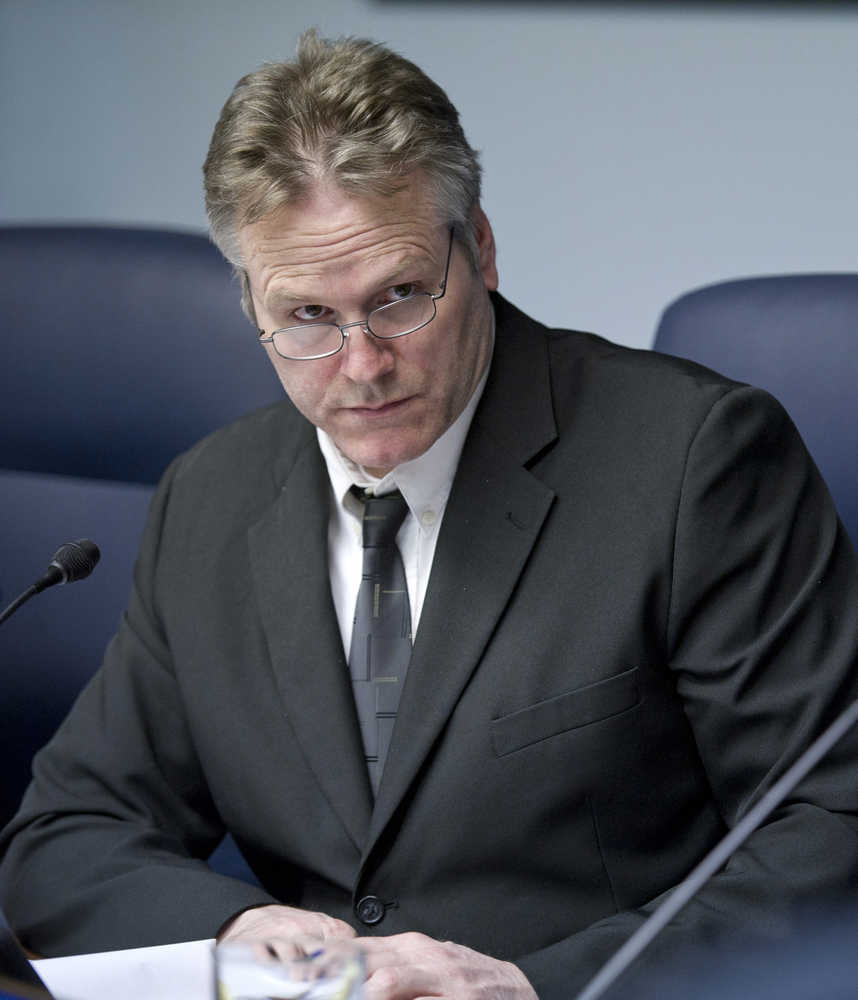Gov. Bill Walker will allow a controversial bill restricting sex education to become law without his signature.
House Bill 156, sponsored by Rep. Wes Keller, R-Wasilla and amended by Sen. Mike Dunleavy, R-Wasilla is billed as a parental rights measure by its sponsors. Any organization wanting to offer sex-ed classes in Alaska must now be overseen by a local teacher and must have its materials and instructors approved by a local school board.
Under the current system, schools are allowed to decide matters on an individual level.
The bill also exempts Alaska schools from a state-imposed standardized testing mandate. Standardized tests are required by the federal government as well, but the Alaska Department of Education and Early Development has requested a waiver from that federal requirement while it comes up with a replacement for the failed Alaska Measures of Progress exam.
Another element of the bill repeals the requirement that school districts spend no less than 70 percent of their funding on education, not administration.
“This was a very close call for me. I received a lot of input on this legislation — from both sides,” Walker said in a prepared statement at 4:40 p.m. Thursday. “Given that this bill will have a broad and wide-ranging effect on education statewide, I have decided to allow HB 156 to become law without my signature.”
In his formal letter to the Legislature, Walker said he believes “some of the bill’s provisions have been the subject of misunderstanding and confusion.”
That’s likely because of the convoluted path HB 156 took in the Legislature. As proposed by Keller, the bill would have simply allowed districts to take a break from standardized testing.
Keller said during floor debates that “a breather” was necessary because the statewide AMP test didn’t provide the information administrators wanted, and because it could not be administered effectively.
In the Senate, Dunleavy had proposed Senate Bill 89, which would have prohibited abortion providers from teaching sex-ed classes in Alaska schools. The bill was seen as targeting Planned Parenthood, and it failed to pass the House.
When his bill failed, Dunleavy amended HB 156 in the Senate to include SB 89’s core provisions. Those provisions were diluted before HB 156 returned to the House, but it still took representatives four tries to get the 21 votes the bill needed. In the final tally, Rep. Cathy Muñoz, R-Juneau, and Rep. Benjamin Nageak, D-Barrow, became the decisive votes.
“I’m beyond disappointed,” said Juneau teacher Amy Jo Meiners on Twitter after Walker’s decision was announced.
Meiners, an opponent of HB 156, was named Alaska Teacher of the Year for 2016.
“This will cause such a burden on teachers (and) our partners in health education, including parents (and) health (professionals),” she wrote.
Planned Parenthood of the Pacific Northwest agreed with that assessment, with spokeswoman Katie Rogers writing by email that “HB 156 is a crushing blow for comprehensive and medically accurate sexual health education in Alaska, and (Walker’s) lack of action today has … elevated sex ed to the most scrutinized subject in the state.”
Rogers went on to say that because Alaska leads the nation in the rates of reported rape and some sexually transmitted diseases, it should not be putting barriers in the way of education.
Keller responded to those concerns by email, saying in a prepared statement that the bill “does not prohibit sex education. The law is consistent with the philosophy that the local school district should be in control of all curriculum offered in its district. The law does not tell the school board what curriculum to adopt.”
The state’s new commissioner of education, Michael Johnson, in a letter to Walker, said that “from the perspective of a parent and educator, I don’t think the sex-ed requirements are beyond what already happens in many districts, and more importantly, beyond what most parents would expect as a common courtesy when sensitive topics are discussed as part of the planned curriculum.”
• Contact reporter James Brooks at 523-2258 or james.k.brooks@juneauempire.com.
—
Read more news:
City celebrates Jackie Street dedication
Senior housing options soon to grow
State regulators to take closer look at AEL&P’s diesel power plans

